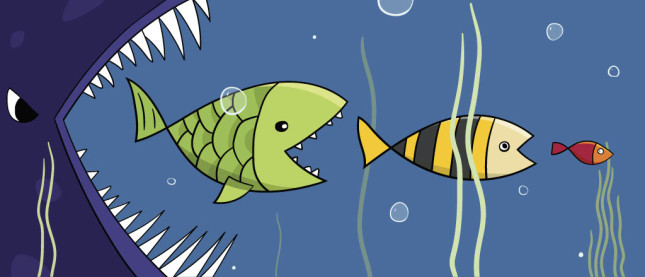-
The Top 5 Posts of July 2021
August 20, 2021 By Holly Sarkissian
Feeding all the fish grown in aquaculture remains a challenge in China, the U.S. and elsewhere. Aquaculture currently uses 75 percent of global fish oil supplies and researchers estimate that the demand for forage fish will exceed the ocean’s supply by 2037. In this month’s top post, Karen Mancl discusses the need for policy interventions to halt the overharvesting of oceans for fish feed and to ramp up the use of alternative fish feeds such as insects and algae.
Through its Belt and Road Initiative (BRI), China has an opportunity to help less developed countries to “green” their energy supplies, writes Judith Shapiro in July’s fifth top post. China and the United States can cooperate on climate action to promote green technology and trade and to clean up “dirty” industries like cement, steel, and coal both domestically and abroad.
Climate change and urbanization are two of today’s most defining trends and paying attention to where they intersect will be key to informing effective policy responses. Climate change will drive increasing rates of both forced displacement and migration and it is estimated that 60 percent of forcibly displaced people worldwide end up in cities. In July’s second top post, Gad Perry, Chris Upchurch, and Laura Cline explain how displacement today is longer term and more urban than ever before.
The COVID-19 pandemic reversed years-to-decades of development progress, slowing global gains in mortality and morbidity. In the third top post, Jennifer Dabbs Sciubba describes the setbacks in development and family planning and slow progress along the demographic transition from high to low fertility and mortality.
“The world is still feeling the full brunt of the COVID-19 pandemic which most likely had its origins in a wild animal,” said John Scanlon AO, Former Secretary-General of CITES and Chair of the Global Initiative to End Wildlife Crime, in a recent Friday Podcast and this month’s fourth top post. The COVID-19 pandemic highlights the need to adopt a One Health approach to regulating wildlife trade where different disciplines work together to attain health for humans, animals, and the environment to prevent future pandemics.
- Aquaculture Fish Feed – Can China and the U.S Break the Ocean Connection? By Karen Mancl
- “Green” China on the Global Stage by Judith Shapiro
- Displacement, Migration, and Urbanization in the 21st Century by Gad Perry, Chris Upchurch & Laura Cline
- World Population Day 2021 – Setbacks in Development and Family Planning Slow Progress Along the Demographic Transition by Jennifer Dabbs Sciubba
- John Scanlon on the Case for Criminalizing Wildlife Trafficking under International Law by Holly Sarkissian
Photo credit: Big fish eats little fish, courtesy of shutterstock.com/BabLab
Topics: What You Are Reading
 A Publication of the Stimson Center.
A Publication of the Stimson Center.



